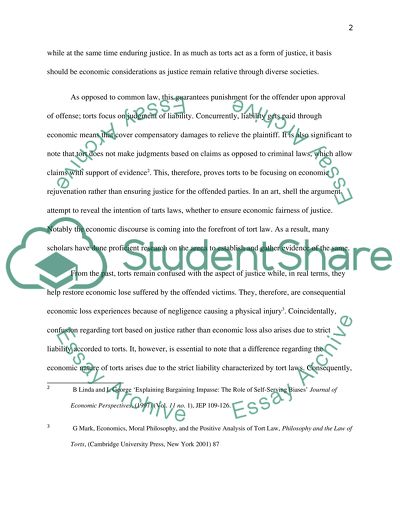Cite this document
(“Economic Considerations, and not Justice, should be the Basis of Tort Essay”, n.d.)
Retrieved from https://studentshare.org/law/1462595-1-economic-considerations-and-not-justice-should-be-the-basis-of-tort-law-critically-discuss-limiting-your-analysis-to-thes
Retrieved from https://studentshare.org/law/1462595-1-economic-considerations-and-not-justice-should-be-the-basis-of-tort-law-critically-discuss-limiting-your-analysis-to-thes
(Economic Considerations, and Not Justice, Should Be the Basis of Tort Essay)
https://studentshare.org/law/1462595-1-economic-considerations-and-not-justice-should-be-the-basis-of-tort-law-critically-discuss-limiting-your-analysis-to-thes.
https://studentshare.org/law/1462595-1-economic-considerations-and-not-justice-should-be-the-basis-of-tort-law-critically-discuss-limiting-your-analysis-to-thes.
“Economic Considerations, and Not Justice, Should Be the Basis of Tort Essay”, n.d. https://studentshare.org/law/1462595-1-economic-considerations-and-not-justice-should-be-the-basis-of-tort-law-critically-discuss-limiting-your-analysis-to-thes.


